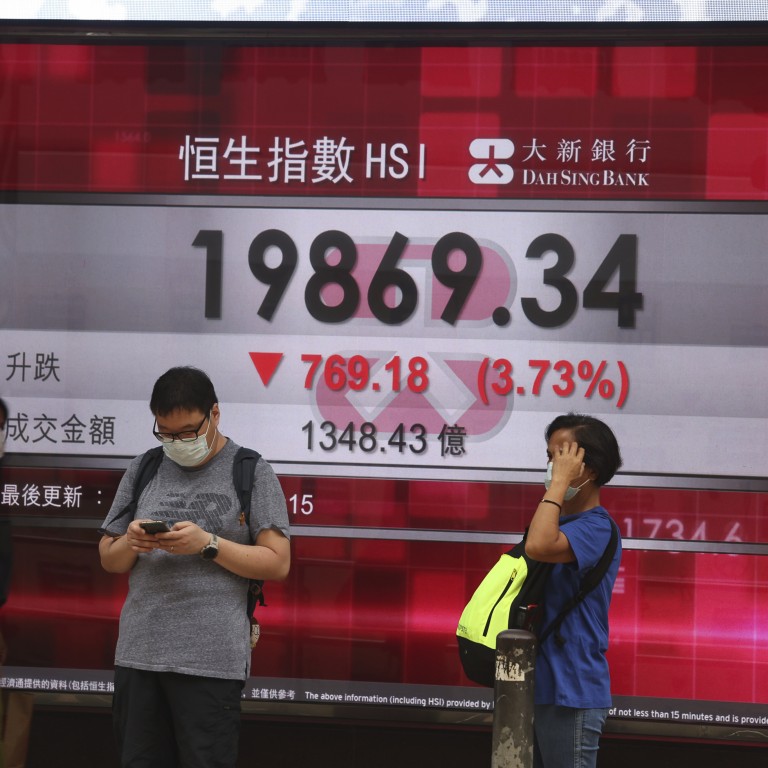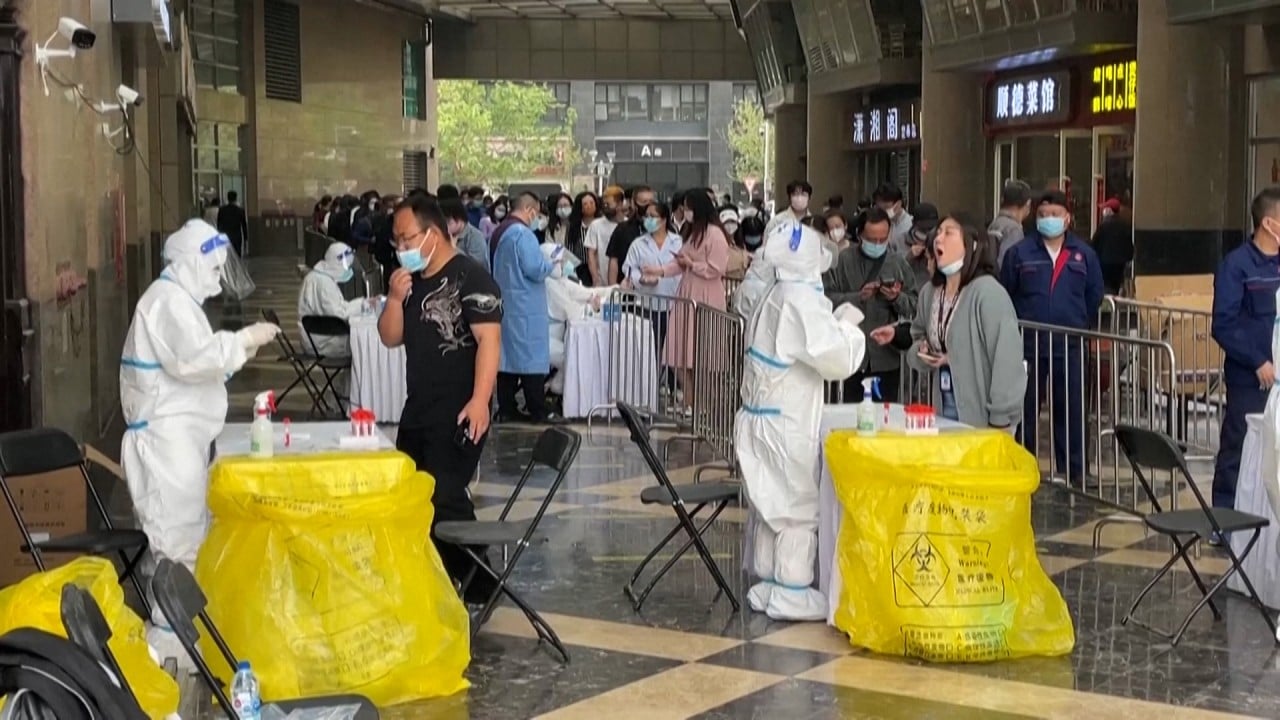
Chinese tech stocks tumble as insiders sell Meituan, JD Health while Hong Kong faces recession risks, higher rates
- Non-executive director Neil Shen sold a chunk of his stake in Meituan late last month, according to stock exchange disclosure
- Hong Kong’s economy shrank by deeper than expected 4 per cent last quarter amid curbs to contain the fifth wave of Covid-19 outbreak
The Hang Seng Index fell 1.1 per cent to 20,869.52 at the close of Wednesday trading, the biggest drop in a week, and bringing the decline this year to 11 per cent. The Tech Index slumped 3.3 per cent. Markets in mainland China are closed for a holiday.
JD Health plunged 13 per cent to HK$43.60 after its chairman Richard Liu sold about 8.8 million shares for HK$440 million in two separate sales over the past week, according to stock exchange filings.
“Investors cashing in on these stocks have soured market sentiment,” said Stanley Chan, research director at Emperor Capital. “This might not be a trend at the moment, but it has introduced selling pressures.” Meituan has a 5.5 per cent weight in the Hang Seng Index while JD Health is not a constituent.
The sales, at beaten-down price levels following a slump of 27 per cent in Meituan and 26 per cent in JD Health this year, suggest a lack of confidence in their business outlook, despite recent hopes for an end to Beijing’s trillion-dollar crackdown in the sector.
Other Chinese tech giants slumped. Alibaba Group Holding, the owner of this newspaper, lost 3.7 per cent to HK$96.55 while Liu’s flagship JD.com retreated 4.1 per cent to HK$239.60 and Tencent declined 3.1 per cent to HK$368.40.
Chinese stocks have weakened in the past three months even as Shanghai prepares to allow more manufacturers to reopen their factories as infections dropped. Beijing’s zero-Covid policy caused partial and citywide shutdowns in more than 50 municipalities and provinces, affecting areas that generate about a fifth of national economic output.
“Without a complete overhaul of the Covid policy, business activity will remain paralysed and the risk to economic growth will remain tilted decisively to the downside,” said Yan Wang, China strategist at Montreal-based Alpine Macro. “The economy is on track to a recession deeper than in 2020.”
Elsewhere, traders are also bracing for faster tightening in US monetary policy, with the Federal Reserve seen lifting the fed funds rate by 50 basis points at this week’s policy meeting to counter the fastest inflation in four decades.
It would be the largest increase since 2000. The Hong Kong Monetary Authority is expected to follow by raising its base rate in lockstep under the city’s linked exchange rate system to sustain its peg to the US dollar.
“Risks remain on Hong Kong’s self-imposed border control and mainland China’s Covid situation,” analysts at Natixis said in a note published on Tuesday. “Unless there is a major change regarding the domestic policies and external risks, we believe the government’s forecast [of 2 to 3.5 per cent] is slightly too optimistic.”
Major Asian benchmarks slipped. South Korean stocks lost 0.1 per cent while Australian equities dropped 0.2 per cent. Japanese markets were closed for a holiday.



